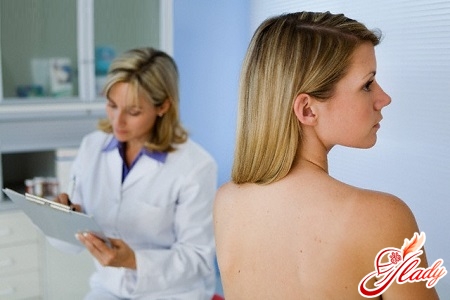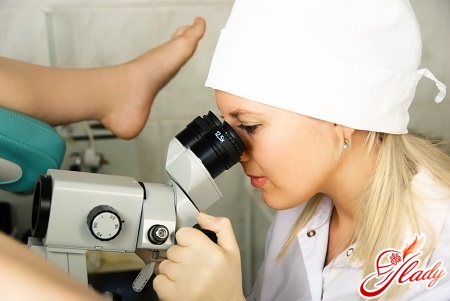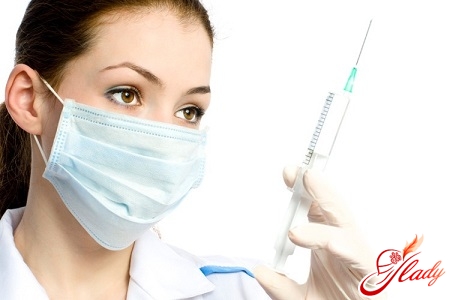
Everyone is familiar with the common cold that appears on thelips. However, few know the consequences that can be caused by the herpes simplex virus. In the medical classification, 2 types of herpes simplex virus are known. HSV-1 (the first type) affects in the majority of the skin and mucous membrane of the lips, nose, eyes and other organs, and HSV-2 (the second type) - genital organs. This is genital herpes. At present, due to the wide spread of oral-genital contacts, there are frequent cases when this type of herpes is caused by the HSV-1 virus. According to medical international centers, about 80% of the world's population is infected with the herpes simplex virus, in addition, most of them are asymptomatic carriers. And only 20% of infected people are familiar with certain clinical manifestations of herpes.
Ways of transmission of genital herpes
Genital herpes belongs to the categorysexually transmitted diseases. Infection occurs not only from a person who suffers from rashes on the genitals (relapse), but also in the absence of characteristic manifestations of the disease, which is observed with asymptomatic virus carrying and atypical forms. Infection is possible and with oral-genital contacts. The transfer of infection by household means is extremely rare. The highest incidence rate is observed in the age group of 20-29 years. The herpes virus can live in the body throughout life. During the inter-recessive period, it is located in the nervous system and does not manifest itself, so patients, often unaware of the presence of the disease, can become a source of infection for sexual partners. In addition to the sexual mode of transmission of genital herpes, infection is possible when the child passes through the birth canal during childbirth or through the placenta of a sick mother. In some cases, human infection can occur in the absence of sexual contact: infection in this case is the result of non-compliance with personal hygiene, when a person with dirty hands transfers the herpes simplex virus from the lips to his genitals. Herpes simplex virus, which once penetrated the body through microtraumas to the skin and mucous membrane of the genital organs, remains in the body for life. A person who has strong immunity, leading the right way of life, may never know about the presence of the virus in the body and not to get acquainted with the clinical signs of the disease. However, with the factors favorable to infection (severe fatigue, stress, hypothermia, colds, overheating in the sun, mental and physical trauma, prolonged alcoholic intoxication, hormonal changes), the virus becomes more active and the genital herpes exacerbation. The most serious complication of genital herpes is herpes of newborns, when the infection of the child passes from the mother during childbirth. The likelihood of transmission of the herpes virus to newborns is increased if the mother is infected in the last 3 months of pregnancy. Infection of newborns leads to serious disorders of the child's nervous system, blindness and even death. If it was found that during pregnancy in a future mother the herpetic infection passed into the active phase, then the method of delivery by caesarean section is recommended, in order to avoid the passage of the fetus through the birth canal. In adults, genital herpes does not cause disruption of the internal organs and does not provoke infertility. This disease is the least dangerous among all those who are sexually transmitted. The question of how to treat genital herpes is topical, because it brings a lot of suffering to the patient during exacerbation, worsens his emotional and psychological state, reduces the working capacity of a person. In addition, the infection facilitates infection with HIV and provokes the transition of HIV into AIDS. 
Genital herpes: symptoms of infection
In medical practice, several stages are distinguishedcourse of the disease: primary genital herpes, in which the disease manifests itself for the first time, and secondary - subsequent cases of disease and relapse. In most cases, relapses are easier in comparison with the primary manifestation of genital herpes. The first signs of genital herpes appear 2-14 days after infection (in case of weakened immunity). It shows its presence in the body by itching, burning, swelling in the genital area. In addition, the course of the disease is accompanied by a rise in temperature, general malaise, headache, a condition that resembles a cold or flu, periodic numbness, aches in the upper thigh, back pain or buttocks, drawing pains in the scrotum or perineum. Within a few days, small vesicles are formed on the mucous membrane of the genitals and skin, the inner surface of the thighs, buttocks, in the urethra, the cervix of the uterus, which are filled with a clear liquid. After the bursting of the vesicles in their place, painful sores appear, causing severe suffering to the patient. The healing of sores occurs in a week, leaving no traces behind. Relapses are accompanied by similar symptoms, except for fever, headache and general malaise. The area of rashes is smaller and they heal faster. Relapse provokes any infectious diseases, hypothermia and emotional stress. Relapses can occur with different frequency from 2 times a month to 1 time per year. After the first episode, genital herpes can occur without visible clinical manifestations. In addition, genital herpes has very vague symptoms that are similar to other diseases. Therefore, many women are treated for a long time from cracks in the vaginal area, thus persistently recurrent thrush, cystitis, painful urination of an undetermined nature. The above described form of the course of herpes is found in women whose rashes are localized inside the vagina and on the cervix, and are not visible to the naked eye. 
Diagnosis of genital herpes
In some cases, for the diagnosis of herpes at brightsevere symptoms are sufficient for a visual examination of the patient. The appearance of a specific blistering rash in the genital area, accompanied by itching, burning and pain is a reliable indicator of herpes. However, the confirmation of the diagnosis is made in the laboratory by the method of taking the material directly from the site of the rash and detecting the presence of the virus (scraping is carried out from the cervix, from the urethra or rectum taking into account the lesion). To diagnose antibodies in the absence of characteristic symptoms, the test material is the patient's blood. Herpes often occurs in conjunction with a number of other sexual infections, so the exact diagnosis is made after testing for trichomoniasis, chlamydia, syphilis, AIDS and other infections.
Principles of treatment of genital herpes
Why treat the genital herpes? All cases of genital herpes require treatment. Otherwise, a number of developing complications will not keep you waiting:
- acute urinary retention due to neuropathy or dysuria;
- preservation of symptoms for a long time;
- an increase in the likelihood of developing cervical cancer;
- infection of the sexual partner;
- spread of infection through the body,penetration into the brain and massive damage to the internal organs. This occurs extremely rarely with immunodeficiency. More often the appearance of extragenital herpes of the skin on different parts of the body (buttocks, brushes, mammary glands), mucous membranes of the eyes.
Long-term complication of herpes in women cancause psychological and psychosexual problems: more than 70% of women noted the emergence of various experiences and a tendency to depression after the first episodes of genital herpes. Therefore, effective treatment is not possible without the positive motivation of the patient. The herpes virus remains in the human body for life and remains in the nerve cells. Modern medicine does not have a medicine that would be able to remove the herpes virus from the body, so doctors often use the term "incurable disease" with regard to herpes. However, there are medications that can suppress the reproduction of the virus, significantly increase the intervals between exacerbations of the disease, smooth out the clinical symptoms of the disease with relapses (reduce soreness, burning and itching, accelerate the healing of ulcers). These drugs include drugs that prevent the virus from multiplying in cells: Acyclovir and Zovirax, available in the form of tablets, ointments and creams. These are relatively inexpensive, but effective drugs that are available to most patients. Antiviral therapy should be combined with actions that enhance immunity, which in turn helps prevent recurrences of genital herpes. In the event of a severe pain syndrome, it is recommended to use painkillers, for example the well-known paracetamol or analgin. With exacerbations, more than 6 times a year, prolonged preventive treatment is carried out for several months. Thanks to it, it is possible to reduce the severity of repeated exacerbations and reduce the relapse rate by 75%. Treatment implies strict observance of strict rules of personal hygiene. The affected area should remain dry and clean. After touching the infected area, you should wash your hands in order to avoid spreading the infection. 
Treatment regimen for herpes
Making a decision than treating herpes, the choice is made in favor of etiotropic and immunocorrecting drugs.
- Stage 1. Acyclovir is a drug for the treatment of acute and recurrent forms of genital herpes.
The drug has a powerful etiotropic effect,activating inside infected cells and inhibiting viral DNA polymerase. Acyclovir has very low toxicity for normal cells. The course of treatment includes enteric taking of capsules of acyclovir. In patients with primary acute infection and in patients with manifestations of herpetic infection with immunodeficiency states of different etiologies, the dose may be doubled. Since the treatment of herpes is necessary with the mandatory use of ointments and creams, it is recommended to use 5% cream of Acyclovir, which is applied to the affected areas of the skin and mucous membranes. As a local therapy, Tebrofen is also used in the form of 2% or 3% ointment, Interferon ointment and others. The peculiarity of the appointment of local antiviral ointments is the frequency of application to the affected areas (at least 5-6 times a day). At the same time, antibiotic therapy can be implemented on the basis of indications, since it is more difficult to treat a patient with a secondarily infected banal flora. It is undeniable the appointment at this stage of inducers of interferon (neovir, rheferon, dibazol), natural antioxidants (vitamins E and C). With a pronounced exudative component, prostaglandin inhibitors (indomethacin) are used.
- 2 stage. Treatment of genital herpes in remission.
Stimulation of the main clinical manifestations of the mainthe aim is to prepare the patient for vaccine therapy. Full nutrition, observance of the rest and labor regime, sanation of chronic foci of infection are shown. In view of the violation of various immunity units that remain in the remission phase, it is advisable to use plant-derived adaptogenes (golden root, lemongrass) or immunomodulators (eg neovir, vobenzima, dibazol).
- Stage 3. Specific prophylaxis of relapses using herpetic vaccines (inactivated, live, recombinant).
The purpose of this vaccination is the activation of cellularimmune response, hyposensitization of the body. It should be noted that this stage is possible after 2 months after the end of the phase of exacerbation of herpetic infection.









